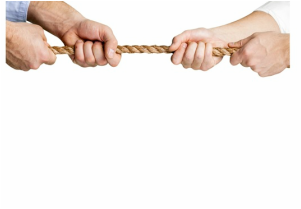|
The death of a parent is one of the most painful losses we will encounter. When the life of that parent is marred by addiction, his or her death can complicate the relationships between surviving family members.
This month's letter addresses a family, first torn apart by addiction, and then gutted when their newly-sober mother succumbed to cancer. If you have any thoughts you'd like to share with our letter writer or with this community, please feel free to leave them in the comments section below. Dear Dr. Jill, I am a 43-year-old woman whose mother died of cancer about six months ago. She was my only living parent. Even though I have a younger sibling (age 40), lately, I feel more like an only child. Growing up, my mother was a single parent. She was also a hard-core alcoholic. Most of my childhood memories are of her, either passed out or acting strangely, and me, feeling terrified of what would happen next, desperate to shield my sister from my mother’s behavior. About five years ago, Mom got sober. Two years into her sobriety, she made amends with me. We were just starting to rebuild our relationship when she was diagnosed with lung cancer. She died roughly two years later. I was devastated. Though losing my mom has been difficult, I’m actually writing because I’m not sure what to do about my sister. My sister moved to the East Coast after high school graduation to get away from mom’s drinking. She never looked back. My sister is still really angry at my mom for the years of drinking and even judges me for being so “quick” to forgive her. Mom tried to work things out with my sister but my sister was never really open to this. Since Mom died, I have tried reaching out to my sister but each conversation seems to regress back into my sister’s anger toward my mom. Anger I no longer feel since Mom and I repaired our relationship. At times, my sister’s rage is more than I can handle. I find myself making excuses just to get off the phone—or avoiding her calls altogether. This is not what I want for our relationship. I love my sister. I want so much for us to be close like when we were younger. If things don’t change, I’m afraid the distance between us will keep growing. Have you encountered similar situations? If so, what advice can you give about how to deal with them? Signed, My Sister’s (Anger) Keeper Dear Keeper, First off, my condolences for your loss. How very sad it is that your mother’s life ended, just as it was beginning anew. The death of a parent, for siblings, tends to be scissors or glue: it either draws them closer together or widens the chasm between them. My Spidey senses tell me you and your sister want the death of your mom to be glue but your sister can't stop herself from charging at you with scissors! You are grieving the most recent version of your mother while your sister is grieving the mother she fled after high school (i.e., a very different mother). Even though you technically lost the same person, your grief looks and feels different right now for this reason. What’s more, I would venture to guess your sister feels conflicted about her choice to decline your mother’s attempt at making amends. This choice was likely made under the auspices that your mother had more time than she did. It is also a choice your sister cannot go back and change now that your mother is gone. If given the option to feel sad and vulnerable or angry and powerful, many of us will choose the latter until we are strong enough to be with the former. It is hard to be caught in anger’s slipstream when you are feeling hurt. Thus, I recommend limiting conversations with your sister to the times you feel fortified enough to hold her pain. When you do speak with her, set limits if she becomes disrespectful. If she is unable to heed those limits, politely end the conversation and try again later when she's more calm. Though you care deeply for your sister, you are not responsible for her choices or the feelings she has about them. And appropriate self-care is nothing to feel guilty about. That said, anger needs only to be acknowledged (sometimes over and over again) for it to recede and, when it does, what usually rushes forward is sadness. I suspect your sister will be easier to connect with once the hard edge of anger is softened by her sadness. In the meantime, because you deserve to be supported in your grief, I recommend connecting with close friends, other family members, a support group for adult children who have lost parents, etc. Grief longs to be witnessed. Ideally your sister would be that witness but, right now, she’s too steeped in her own grief to hold yours. It's unfortunate. And, it's not personal. Finally, remember that grief is fluid. It moves around a lot. Just as you will not always feel this sad, your sister will not always feel this angry. Keep showing up with your boundaries intact and, when she is ready to put down the scissors, the relationship is likely to feel a lot more like glue--for both of you! Your In Health, Dr. Jill Dr. Jill Gross is a licensed psychologist, counselor and dating coach in the Phinney -Greenwood area of North Seattle. If you and your siblings are struggling with the death of a parent, help is just a click away. Schedule a free consultation to see how grief therapy can help restore peace in your family!
0 Comments
Growing up, my sister and I fought a lot. I'm sure we drove our parents crazy, bickering about one perceived slight or another--who stole the purple Barbie Corvette, whose turn it was to sit in the front seat--really important stuff like that.
When frazzled adults attempted to intervene, we would immediately attempt to soften the blow of justice by casting ourselves in the role of victim. "She started it!" or "It was all her fault!" These battle cries did little to exonerate us. More frequently, they got us both into more trouble. I am now a mother and witness to my children's whodunnit capers. At twelve and fourteen, when they disagree, it is imperative my children determine whose fault it is or who started it. Back and forth they lob the blame, desperate to "win," until they tire or I go all "Scary Mommy" on them, whichever comes first (hint: it's usually the latter). Thirty-five years later, my children picked up the argument right where my sister and I left it. With underdeveloped egos, children play the blame game because they don't know any better. For them, a complex world is made simpler when viewed through lenses of right and wrong. Why then, in conflict, do adult family members, lovers, or friends (who know better) dissolve into enemies over seemingly trivial things? The answer is both simple and complex. Conflict exposes our unmet needs for love, acceptance, or acknowledgement. The more intense the conflict, the deeper the unmet need. Acute awareness of this hunger makes us feel ashamed. We attack others so they won't notice how vulnerable we are. Acknowledgement and understanding open our channels for love; self-righteousness closes them. Dividing arguments into factions of winners and losers is a betrayal of our hunger. Every time we point our finger away from ourselves, we are unconsciously telling love where to go. If it is love we crave the most, when we are wounded, we must be brave enough to step off the mat, first toward ourselves, then toward each other. While there is no prescriptive formula for this, here are a few things to consider: 1. Know when you are triggered and take care of yourself. "The red zone" (increased heart rate, blood pressure, unclear thinking, etc.) is your body's way of signaling you to stop and pay attention to your own unmet needs. When you start to feel overwhelmed, tell the person with whom you are in conflict that you need to take a quick break to settle yourself. Twenty minutes is usually enough time to reduce cortisol (aka stress hormone) levels and restore clear thinking. When you are calm, ask yourself what you really want. 2. Consider both sides. Compassion inches us toward connection. Like you, the human with whom you are arguing is also lugging around a suitcase full of his or her own unmet needs. You already know your side of the story. Practice arguing his or hers: how might s/he feel? What might s/he want? Exploring another's perspective does not mean we agree with it. It simply means we are open to considering someone else's point of view. Sometimes, feeling heard is enough to convince both parties to drop the rope. 3. Depersonalize outcomes. Ask respectfully for what you want. This does not mean that you will get it. Rarely is this personal. Remember: all disappointment is an invitation to attend to our own hunger. Offer yourself the love you seek from another. 4. This too is temporary. This "thing" that seems so important right now? It will eventually pass. Every feeling we have is designed to last approximately 60-90 seconds. That's it! 5. Set an intention for change and give it time. Like a scab, anxiety can tempt us to pick at a situation that would otherwise heal nicely on its own. Not knowing what to do right now could mean that both time and nature need to work their magic. Set this down for a while. You can always come back to it later. All you need to know right now is that you are open to resolution. 6. You're in this together. All relationships are co-created. You alone are not responsible for fixing any relationship. Resolution requires participation from both parties. There is no shame in hunger. Wrap your arms around whatever it is you yearn for. When we hold ourselves accountable for our own unmet needs, conflict does not divide us. It helps us find each other! Dr. Jill Gross is a licensed psychologist, therapist, and counselor. She offers grief therapy, divorce support, and other counseling services in the Phinney Greenwood area of Seattle, WA. Is your relationship being torn apart by conflict? Schedule a free consultation to find out how therapy or counseling can help put things back together. As a therapist, I often hear many different versions of, "If my partner/friend/family member would do more of this or less of that, I would be SO MUCH happier." Seems many of us believe the road to contentment is paved with another's intentions. When a loved one's behavior is overtly destructive, would a change likely do everyone some good? Sure. However, when we focus exclusively on someone else's motivations or actions, we forfeit our own power to affect change. A pointed finger merely identifies the person to whom we have relinquished it. Emotionally intense (heated) and/or familiar (repeated) arguments hold the key to identifying and resolving the childhood wounds that obstruct intimacy. The heated and repeated words we speak are usually (a) the words we needed to say at the time the wound was created (but we were too small or vulnerable to speak them), (b) what we most needed to hear from the person or people who initially hurt us, or (c) the words we are speaking about and for ourselves. Each time we notice and respond lovingly to our words in the present moment, we move toward healing the past. Each repetitive argument is life's way of asking us to clear the obstacles that keep us from loving more freely. Partners cannot clear these obstacles for us; we must do it ourselves. I know; I've been there. I once struggled in a relationship with someone who did not know how to respectfully treat others. After months of fruitless pleas for him to change, I realized I was the one who was being disrespectful: of him by expecting he morph into someone he wasn't and of myself for ignoring my own words. It was I who had to change. Over time, I came to appreciate how choosing an unhealthy relationship was a necessary part of learning to respect myself. Had I continued to direct my energy toward someone else's behavior, this lesson would have been missed entirely. The next time you find yourself shouting something you've said more than three times, I encourage you to accept life's invitation. Listen to your words. Love yourself by respecting your own words. Your words are a testament to your strength. Your words will tell you everything you need to know. Your thoughts? Dr. Jill Gross is a licensed psychologist, therapist, and counselor. She offers grief therapy, divorce support, and other counseling services in the Phinney Greenwood area of Seattle, WA. Feeling worn down by your own heated and repeated arguments? Schedule a free consultation to find out what these arguments may be trying to teach YOU! |
AuthorDr. Jill Gross is a licensed psychologist, specializing in grief and divorce. Her coaching and therapy practice is located in the Phinney - Greenwood area of North Seattle in Washington. Archives
May 2021
Categories
All
|
HoursM-TH: 8:30 AM - 2:00 PM.
By Appointment Only |
Telephone & Email |
Address503 N. 50th Street
Seattle, WA 98103 |
*Header Photographs courtesy of Josh Martin





